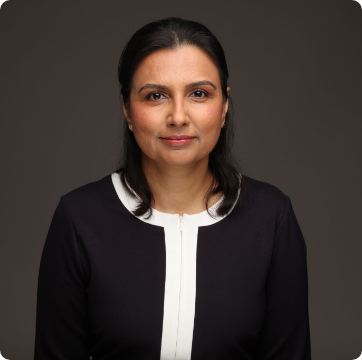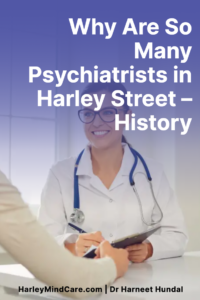If you are interested in private healthcare and explored this world you will surely have heard of Harley Street. However, if you have never explored this vast world of private healthcare, Harley Street may be a mystery. It is a street in central London famous for its medical professionals and has a history dating back centuries. But why does it hold such a prestigious history? Let’s dive into the history of Harley Street to find the origin of its worldwide popularity.
What Is Harley Street?
This London street and surrounding area is a renowned global center for private healthcare. With a medical history dating back to the 1800s, it boasts over 3000 medical professionals and 200 clinics. The abundance of specialists and treatments available makes it highly likely that you will find the care you need or desire.
From lifesaving treatments to diagnosis and healthcare from leading professionals, it is a go-to place for every medical speciality. Even if you are looking for dentistry or private cosmetic surgery, you can find highly qualified professionals here.
A Brief History Of Harley Street
With Edward Harley’s marriage to a wealthy heiress, he inherited a portion of the Marylebone area in London. In 1719, the couple planned to develop this land into a distinguished collection of buildings, ultimately establishing and naming Harley Street.
During the subsequent centuries, from the mid-1800s to the mid-1900s, physicians flocked to the area as it provided access to magnificent yet reasonably priced buildings. These structures allowed professionals to establish their practices on the ground floor while residing with their families above. Consequently, the street flourished, solidifying its reputation as a medical hub from the mid-1900s onward.
Here are some famous names that you may recognise:
- In the early 1850s, the founder and pioneer of modern nursing “Florence Nightingale” served at the Institute for the Care of Sick Gentlewomen before departing to aid in the Crimean War.
- In 1886, Joseph Merrick, famously known as the Elephant Man, was admitted to the London Hospital on Harley Street. He remained under care there until his passing at the age of 27.
- In 1924, Lionel Logue, renowned as the speech therapist to King George VI, commenced his practice on Harley Street. By 1926, King George VI (then the Duke of York) began speech therapy with Logue to address his stutter.
How Did Harley Become Popular For The Best Psychotherapists?
In the 20th century, mental health emerged as a prominent medical focus. Renowned psychoanalyst Sigmund Freud introduced his revolutionary “talking cure,” including challenging methods like skull measurements and magnet therapy for stress relief. Following World War II, psychotherapy gained momentum, with pioneers like Carl Jung expanding upon Freud’s concepts.
Today, mental health holds a revered position within the medical field. In the UK, elite practitioners are drawn to the prestigious Harley Street, and a range of specialities from psychologists and psychiatrists to counselors and psychotherapists is present here.
Why Does Harley Street Continue To Be Famous?
As evidenced, it has a longstanding reputation that draws individuals from abroad to seek specialised medical care. This increase in health tourism has urged the development of numerous nearby hotels to accommodate visitors. Dental tourism is also a significant attraction to Harley Street.
In fact, according to The Medical Tourism Index, which assesses and compares the world’s top destinations for medical tourism, the UK ranked second (just after Canada) in 2016-2017. The influx of wealthy clientele contributes to the prominence of medical practices in the coveted W1 postcode, renowned for housing top-tier professionals and facilities.it
Which Types Of Specialists Are On Harley Street?
Due to the concentration of doctors, you can find many specialists in one location.
More than 300 top doctors and specialists in their fields work on or around Harley Street.
Here are just some of the reasons why people visit Harley Street and its surrounding areas:
- Psychiatrists
- Radiologist
- Cosmetic Surgery
- Gastroenterologist
- Gynaecologists
- Cosmetic dentistry
- Fertility Treatment
- Ophthalmologists
- Paediatric care
- Urologist
- Dentistry
- psychology and more
We can not list all of them here because there is a list of specialists from A to Z on its Website and you can find it on Harley Street’s Website.
How Can You Find The Best Doctor For Yourself?
It may be overwhelming to navigate thousands of specialists on Harley Street. But how do you start? You can quickly kickstart your search for medical specialists by exploring Top Doctors. Many online platforms feature the finest medical experts in the UK, providing comprehensive details about their experience, areas of expertise, and availability—all conveniently accessible online. It will help you simplify your search process.
Conclusion
Harley Street is a beacon of excellence in private healthcare, with a history dating back centuries. From its humble beginnings as a development project by Edward Harley to its current status as a global center for medical expertise, Harley Street has continuously attracted top medical professionals and patients. With its diverse array of specialists spanning various fields, from traditional medicine to cutting-edge treatments, Harley Street remains a destination for those seeking unparalleled healthcare services. Whether one requires specialised treatment, diagnostics, or cosmetic procedures, Harley Street’s legacy of quality care endures, making it a cornerstone of the medical landscape both in the UK and worldwide.

I’m Dr. Harneet Hundal, a Senior Consultant Psychiatrist with 20 years of experience. Specialising in forensic and community psychiatry, I’ve led initiatives to improve mental health services and address inequalities. My expertise spans mood, anxiety, psychotic, and personality disorders, as well as neurodevelopmental conditions.


